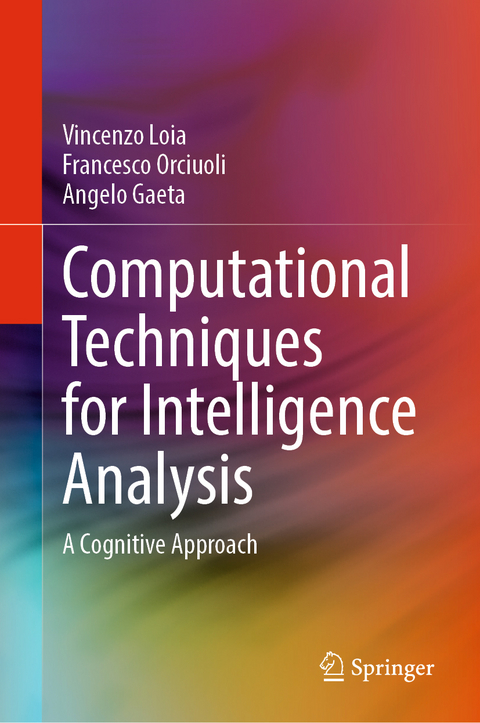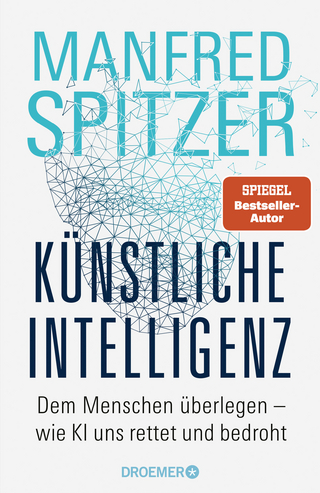
Computational Techniques for Intelligence Analysis
Springer International Publishing (Verlag)
978-3-031-20850-8 (ISBN)
This book focuses on the definition and implementation of data-driven computational tools supporting decision-making along heterogeneous intelligence scenarios. Intelligence analysis includes methodologies, activities, and tools aimed at obtaining complex information from a set of isolated data gathered from different sensors. The tools aim at increasing the level of situation awareness of decision-makers through the construction of abstract structures supporting human operators in reasoning and making decisions. This book appeals to students, professionals, and academic researchers in computational intelligence and approximate reasoning applications. It is a comprehensive textbook on the subject, supported with case studies and practical examples in Python. The readers will learn how to define decision support systems for the intelligence analysis through the application of situation awareness and granular computing for information processing.
Vincenzo Loia received the master's degree in computer science from the University of Salerno, Fisciano, Italy, in 1985, and the Ph.D. degree in computer science from the University of Paris 6, Paris, France, in 1989. He is currently a rector of the University of Salerno (from November 2019) and a full professor of computer science with the University of Salerno where he held the position of researcher from 1989 to 2000 and as an associate professor from 2000 to 2004. Since the beginning of his career, he has shown a deep and operational research interest, in particular in the use of innovative approaches for solving complex problems through new paradigms of software design and programming, that of agent and multi-agent systems; in the design and testing of systems for approximate reasoning, through the synergistic use of standard semantic technologies, description logic and fuzzy logic; in the definition of original conceptual data analysis methodologies for the extraction of knowledge from unstructured resources; in the creation of decision support systems conveyed by artificial intelligence models, cognitive architectures, computational intelligence and granular computing. Precisely with respect to the latter, it demonstrates that it has the sensitivity to understand, apply and contribute to research on models, such as granular and cognitive computing, which strongly base their principles on aspects concerning the study and analysis of human cognitive processes. These research interests have characterized his path of international dissemination through which he has established a rich network of scientific collaborations with researchers worldwide (including the close relationship with the founder of the fuzzy theory, Lotfi Zadeh). The pillars that characterize his scientific research over the years have been reflected in various application domains, from medical to legal, and more recently in the field of cyber-intelligence. Precisely in the latter area, he shows his great predisposition to multidisciplinarity, coordinating the scientific committee of the "Multidisciplinary Observatory for the fight against organized crime and terrorism" which implements a continuous scientific research activity applied to the thematic areas of computational intelligence and countering terrorist activities spread on the Web and Deep Web, in support of information analysis projects for crimes under the responsibility of DNA (National Anti-Mafia and Anti-Terrorism Directorate). Vincenzo Loia is:
- Editor-in-Chief and Founder of the international journal "Ambient Intelligence and Humanized Computing," Springer
- Editor-in-Chief of the international magazine "Evolutionary Intelligence," Springer
- Editor Responsible for Special Issues of the international magazine "Soft Computing," Springer
- Co-Editor-in-Chief of the international journal "Information Processing Systems"
- Associate Editor of the IEEE Transaction Systems, Man and Cybernetics: Systems journals; IEEE Transactions on Fuzzy Systems; IEEE Transactions on Cognitive and Developmental Systems.Introduction.- Intelligence Analysis.- Foundations of the computational techniques.- Applying Situation Awareness to Intelligence Analysis.- Decision making through what-if analysis.- System modelling with graphs.- Behaviour modelling with fuzzy signatures.- Concept drift analysis with structures of opposition.- Comparing different approaches for implementing probability based rough set operators.- Data streaming scenarios.- Dealing with continuous variables: neighborhood and dominance based rough sets.
| Erscheinungsdatum | 05.01.2023 |
|---|---|
| Zusatzinfo | XII, 181 p. 57 illus., 27 illus. in color. |
| Verlagsort | Cham |
| Sprache | englisch |
| Maße | 155 x 235 mm |
| Gewicht | 419 g |
| Themenwelt | Informatik ► Theorie / Studium ► Künstliche Intelligenz / Robotik |
| Technik | |
| Schlagworte | Artificial Intelligence • Computational Intelligence • Contemporary Fuzzy Logic • Fuzziness • Fuzzy Logic • Scilab |
| ISBN-10 | 3-031-20850-1 / 3031208501 |
| ISBN-13 | 978-3-031-20850-8 / 9783031208508 |
| Zustand | Neuware |
| Haben Sie eine Frage zum Produkt? |
aus dem Bereich


